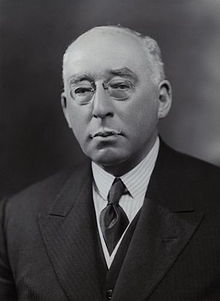Herbert Stanley
British diplomat From Wikipedia, the free encyclopedia
Sir Herbert James Stanley, GCMG KStJ (25 July 1872 – 5 June 1955) was a leading British colonial administrator, who served at different times as Governor of Northern Rhodesia, Ceylon and Southern Rhodesia.
Sir Herbert Stanley | |
|---|---|
 | |
| 25th Governor of British Ceylon | |
| In office 20 August 1928 – 11 February 1931 | |
| Monarch | George V |
| Preceded by | Arthur George Murchison Fletcher (Acting governor) |
| Succeeded by | Bernard Henry Bourdillon (Acting governor) |
| Personal details | |
| Born | 25 July 1872 England |
| Died | 5 June 1955 (aged 82) Cape Town |
| Spouse(s) | Reniera van Oosterzee Cloete (m. 1918-1950; her death); later Dame Reniera Stanley |
| Children | 4 |
Life and career
Summarize
Perspective
Born in England, Stanley was educated at Eton College and Balliol College, Oxford,[1] and worked in the foreign service in Dresden and Coburg before serving as the Resident Commissioner for Southern and Northern Rhodesia from 1911 to 1914.
Stanley proved controversial in this role when he refused to allow settlers to take land from Africans, instead assigning 21,500,000 acres (87,000 km2) in perpetuity exclusively for the use of Africans.[2]
Based in South Africa during World War I, Stanley married Reniera van Oosterzee Cloete, from a leading Cape Town family, in 1918. She was described as "one of the most beautiful women of the century in any country of the world". She predeceased her husband, dying in 1950.[3]
In 1918, Stanley was appointed imperial secretary in South Africa, a position he held until 1924, when he was appointed the inaugural governor of Northern Rhodesia. Taking office on 1 April 1924 as governor of Northern Rhodesia, Stanley sought an amalgamation of the central African colonies and an extension of the Northern Rhodesian Railway into Southern Rhodesia.[4] He was also active in establishing and promoting Boy Scouts and Girl Guides.[5]
In 1927, Stanley was transferred to Ceylon as its governor, which drew criticism due to his lack of background knowledge of Asian affairs, although he is reported to have acquitted himself well.[1] Whilst in Ceylon he served as president of the Ceylon Branch of the Royal Asiatic Society in 1929–30.[6] In 1932, he was made Knight of Grace of the Venerable Order of Saint John[7]
He returned to Africa in 1931 to serve as High Commissioner for the United Kingdom in South Africa before his appointment as Governor of Southern Rhodesia in 1935, initially for a two-year term, but he was persuaded to remain in Salisbury until 1942, when he retired from active service.[8]
Upon his retirement, Stanley settled in Cape Town and was appointed chief commissioner of the Boy Scouts of South Africa.[9] He died a widower in a Cape Town nursing home, aged 82, survived by two sons and two daughters.[1]
References
Wikiwand - on
Seamless Wikipedia browsing. On steroids.
